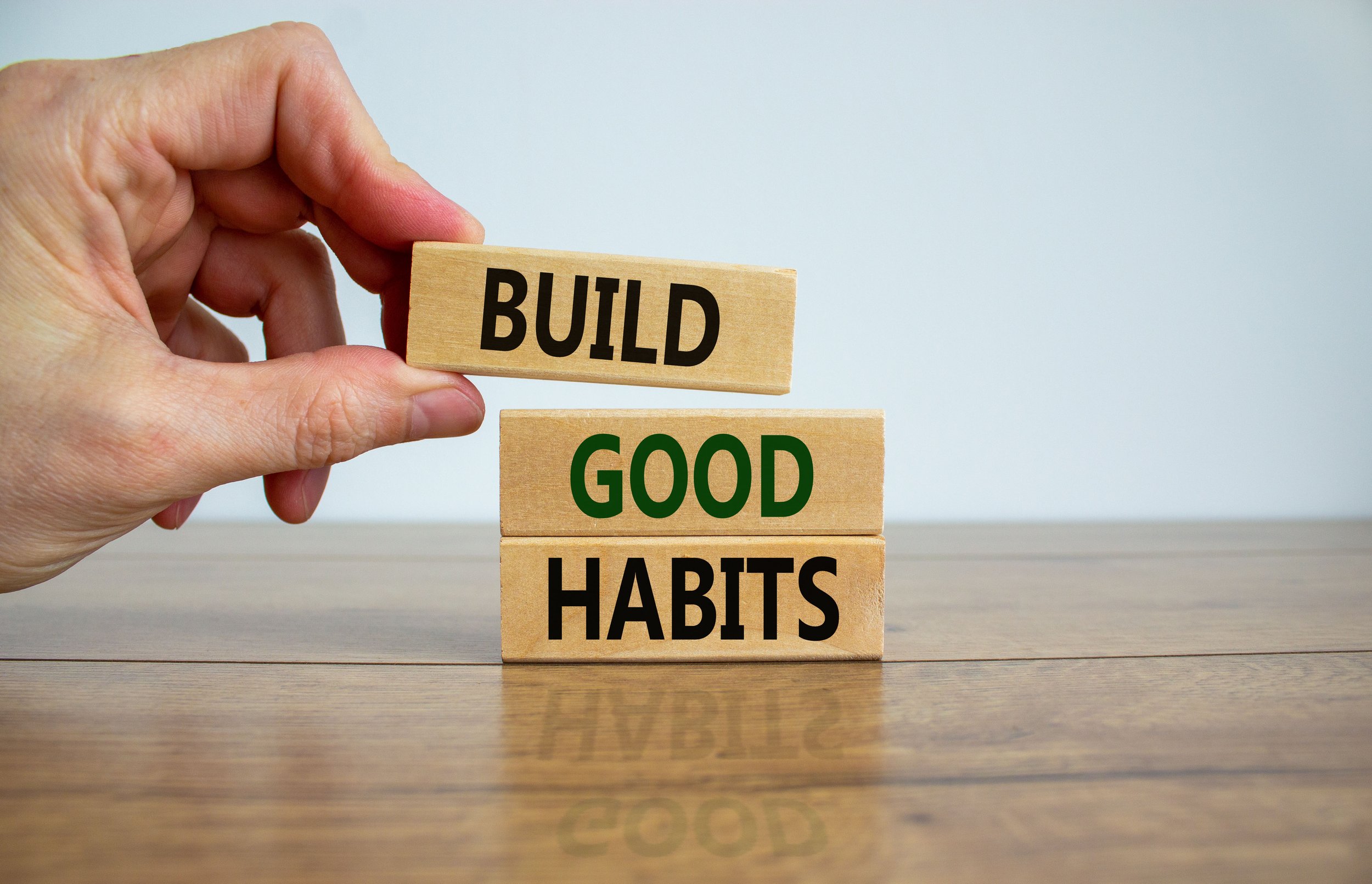Healthy habits that begin at home
Forming healthy habits is hard. Maintaining those habits may be even harder. We all want to be the very best versions of ourselves that we can be, but it isn't easy.
It takes an average of two months to form a new habit ŌĆö but could really take anywhere from weeks to months depending on what new habit youŌĆÖre attempting to form.
With the fast-paced lives we have and what seems like almost constant grabs at our attention and desires, keeping up with a healthy habit can sometimes feel impossible.
A good way to begin is actually to consider starting with healthy habits which only require a few adjustments to your everyday life.
Here are five healthy habits and important steps that are easy to start at home, as well as tips for helping you stay on track.
1. Move more and sit less
Sure, you might be moving around a fair bit at school. But coming home and dropping onto the couch for the rest of the day in front of the TV doesnŌĆÖt exactly scream healthy lifestyle.
You can't ŌĆö and probably shouldn't ŌĆö exercise all day. But you can make an effort to stay active throughout the day while still getting schoolwork done.
Here are a few ways to move more and sit less:
Go out for a walk or a run
Take the stairs instead of the elevator
Get involved in extra-curricular sports groups
2. Successful sleep
Have you checked out our blog post on sleep?
You already know what happens when you don't get enough quality sleep ŌĆö low energy levels, difficulty concentrating and the list goes on.
Lack of sleep actually affects more than how you feel the next day. Over time, insufficient sleep can impact your mental health, affect your overall health and even lead to a variety of chronic health conditions.
Here are tips for improving your sleep:
Train your brain and body by sticking to a consistent sleep schedule
Keep your bedroom quiet, dark and cool
Use your bed for sleep, not for watching TV or reading a book
Keep bedroom as gadget free as possible and switch to softer yellow light.
Avoid large meals late at night ŌĆō eat dinner at least two hours before bed.
Avoid caffeine in the late afternoon.
3. Stay hydrated
Water makes up approximately 60% of the human body, but for some reason we donŌĆÖt often consider that dehydration could be the culprit when we feel lethargic, moody or distracted.
We all know how easy it is to grab something else to drink instead of another glass of water. Water always seems like the boring option.
But your body relies on water to perform a huge list of vital tasks, including helping blood circulation, supporting brain function, and regulating your body temperature.
Since you're constantly losing water as you breathe, sweat and use the restroom, it's critical that you replace the water you lose throughout the day.
Here are tips for staying hydrated:
Carry a water bottle around with you
Know how much water you need to consume every day
Make drinking a glass of water part of your normal routine
Try unsweetened sparkling water or flavour your water by adding fresh fruits, vegetables and herbs
Choose hydrating snacks, like cucumbers, celery, strawberries or watermelon
Make sure you keep up your water intake throughout the day (playing catch up at the end of the day doesn't change the fact that you were dehydrated all day)
4. Pack in the fruits and veggies
A diet rich in fruits and vegetables comes with important health benefits, including weight management and a reduced risk of many chronic health conditions.
The reality is that if you're not eating plenty of fruits and vegetables, you're missing out on the health benefits they provide.
It also may mean you're filling up on calorie-dense foods or ones that are heavily processed ŌĆö which, when eaten in excess, can come with health disadvantages.
Here are a few ways to get more fruits and veggies into your meals:
Check out the fruit and veg aisle at the supermarket and embrace the wide variety on offer
If youŌĆÖre into cooking, learn the various methods and seasonings that make vegetables taste good
Get creative and replace carb-heavy food items with veggies
Tempt your sweet tooth by placing a fruit bowl somewhere you can see it
5. Reward yourself the right way
Rewards are important. They make you feel good, and encourage you to continue to make good choices.
But if the reward you choose is inherently unhealthy, is it truly a reward? Whether it's eating an entire family-size bag of chips or binge-watching TV all weekend, not all rewards are actually rewarding to your body and brain.
Rather than overdoing it on unhealthy indulgences, consider making your reward something that you not only enjoy, but are grateful for. It could be a hobby, spending time with a person, a pet, or just doing something you enjoy ŌĆö whatever it is, invest your time there as your reward.
A lot goes into forming and maintaining healthy habits. By starting small and choosing habits that are easy to stick to no matter where you are, your likelihood of making healthy choices ŌĆö day in and day out ŌĆö greatly increases.
And be sure to give yourself plenty of leeway as you're forming healthy habits, making sure you're not packing on the guilt when you make a misstep.
Remember, moving for just 10 minutes is better than not moving at all. Going to bed later than planned now and again happens. Replacing even just one can of soda with a glass of water is progress. Eating a burger instead of a salad doesn't mean your healthy eating has gone out the window. And rewards are important, as long as you keep them healthy or indulge in moderation.

